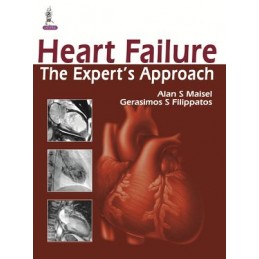- Obniżka


 Dostawa
Dostawa
Wybierz Paczkomat Inpost, Orlen Paczkę, DHL, DPD, Pocztę, email (dla ebooków). Kliknij po więcej
 Płatność
Płatność
Zapłać szybkim przelewem, kartą płatniczą lub za pobraniem. Kliknij po więcej szczegółów
 Zwroty
Zwroty
Jeżeli jesteś konsumentem możesz zwrócić towar w ciągu 14 dni*. Kliknij po więcej szczegółów
Heart failure is a serious condition caused by the heart failing to pump enough blood around the body at the right pressure. It usually occurs because the heart muscle has become too weak or stiff to work properly, most commonly caused by heart attack, high blood pressure or cardiomyopathy (heart disease).
This book is a comprehensive guide to heart failure for clinicians. Divided into six sections, the book begins with emergency management, then discusses heart failure in both in-patient and out-patient hospital care. A complete chapter is dedicated to the role of biomarkers at different stages of heart failure.
Special issues such as diabetes management and heart failure, geographical variations, and chronic heart failure in geriatric patients, are discussed in depth. The final sections examine advanced heart failure and the diagnosis and management of cardiomyopathies.
Written by experienced authors from the University of California and the University of Athens, this manual includes more than 175 images and illustrations to enhance learning.
Key points
Opis
Section 1:: The Emergency Department
Section 2:: Heart Failure in the Hospital
Section 3:: Chronic Heart Failure in the Outpatient Setting
Section 4:: Special Issues in Heart Failure
Section 5:: Advanced Heart Failure
Section 6:: Cardiomyopathies:: Practical Recommendations to Diagnosis and Management
